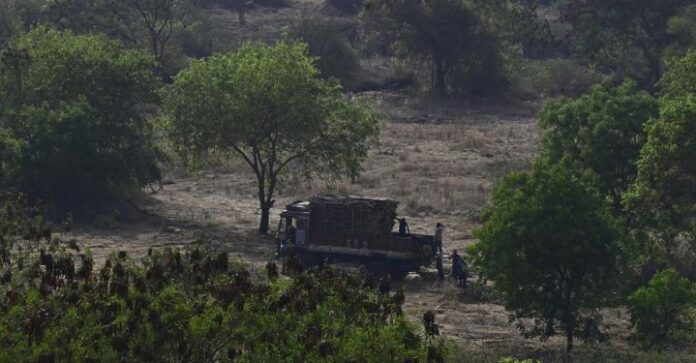The Supreme Court of India has recently issued a stay on the tree-felling activities taking place in the Kancha Gachibowli area of Hyderabad. This decision comes in response to mounting concerns raised by environmentalists, activists, and local communities about the destruction of green cover in the city.
Kancha Gachibowli, an area that was once abundant with dense foliage and natural resources, has seen a growing demand for urbanization. The construction of residential complexes, commercial buildings, and infrastructure projects have led to large-scale deforestation in the area. The decision of the Supreme Court has, however, put a temporary halt to these developments to assess the environmental impact thoroughly.
Environmental Concerns
Environmentalists have been vocal about the rapid depletion of green cover in the area. Hyderabad, like many rapidly urbanizing cities in India, has faced growing challenges in balancing infrastructure growth with environmental conservation. Kancha Gachibowli was home to a significant number of mature trees, which provided essential ecological services such as air purification, temperature regulation, and habitat for wildlife.
The rise in air pollution, increasing heat in the urban environment, and reduced water retention capacity of the soil are some of the key impacts that environmentalists highlighted. Additionally, the loss of biodiversity due to habitat destruction is also a cause for concern. The stay issued by the Supreme Court seeks to address these issues before the construction works continue.
Court’s Directive
The bench, headed by Chief Justice of India, made it clear that no further tree cutting activities would take place unless an independent committee examines the situation and reports its findings. The court has ordered the government to submit a detailed report on the ongoing urban development plans and their environmental consequences.
This move follows petitions filed by various environmental groups and citizens of Hyderabad who are deeply concerned about the ecological impact of the rapid urban expansion. They have demanded that the authorities reconsider the massive deforestation happening in the region.
Urbanization vs. Environmental Preservation
Hyderabad, the capital city of Telangana, has been expanding rapidly in recent years. It is a hub for information technology, real estate, and education. The demand for land for residential and commercial purposes has put pressure on the natural resources in the area.
While urbanization is essential for economic growth, experts argue that such developments need to be planned more sustainably. Without careful consideration of the environment, cities may experience long-term damage that affects not only the local ecosystem but also the well-being of their inhabitants.
Future of Gachibowli’s Green Spaces
The Supreme Court’s intervention has raised hopes among environmentalists that the future of Gachibowli’s green spaces may be secured. Many believe that sustainable urban planning and the inclusion of green belts and parks in development projects could provide a better balance between development and ecology.
The decision could also serve as a precedent for other cities in India, encouraging planners and authorities to be more cautious about the environmental impact of their projects. The case highlights the need for more rigorous environmental impact assessments before the approval of large-scale construction projects.

